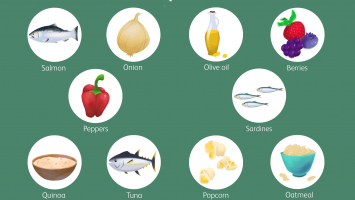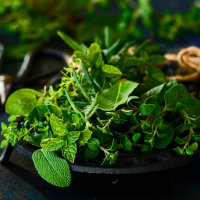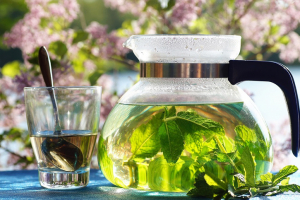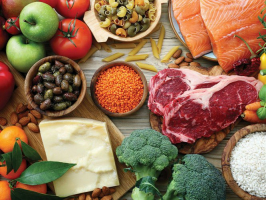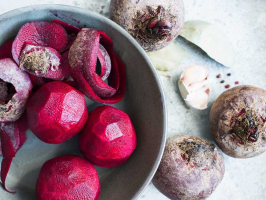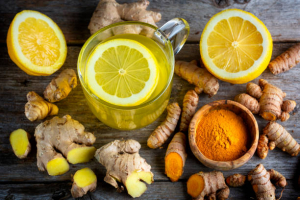Top 10 Best Fermented Foods and Drinks to Boost Digestion and Health
Fermentation is the breakdown of carbohydrates by bacteria and yeast. Not only does eating fermented foods improve food preservation, but it also increases the ... read more...number of good bacteria, or probiotics, in your stomach. Probiotics have been linked to a number of health benefits, including better digestion, immunity, and even weight loss. Here are ten fermented foods and drinks that have been demonstrated to help with digestion and health.
-
Kefir is a dairy product that has been cultivated. It's made by combining milk with kefir grains, which are a mix of yeast and bacteria. This creates a thick, tart liquid with a flavor that is frequently comparable to yogurt. Kefir has been shown in studies to provide a variety of health benefits, ranging from digestion to inflammation to bone health. Kefir was proven to aid lactose digestion in 15 patients with lactose intolerance in small, older research. This disorder causes cramps, bloating, and diarrhea in those who can't digest the sugars in dairy products.
Kefir also has a lower lactose level than milk. When kefir grains and milk are mixed, the bacteria in the grains aid in the fermentation and breakdown of the lactose in the milk. Another research revealed that drinking 6.7 ounces (200 mL) of kefir daily for six weeks reduced inflammatory indicators, which are related to chronic diseases including heart disease and cancer. This tangy drink may also help to strengthen bones. In a 6-month study of 40 people with osteoporosis, a condition characterized by weak, porous bones, those who drank kefir had greater bone mineral density than those who didn't. Kefir can be consumed on its own or mixed into smoothies and drinks
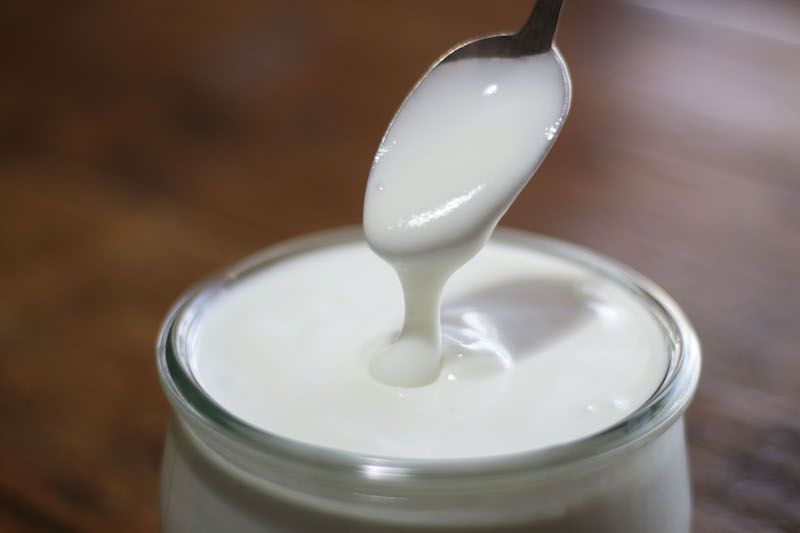
Kefir 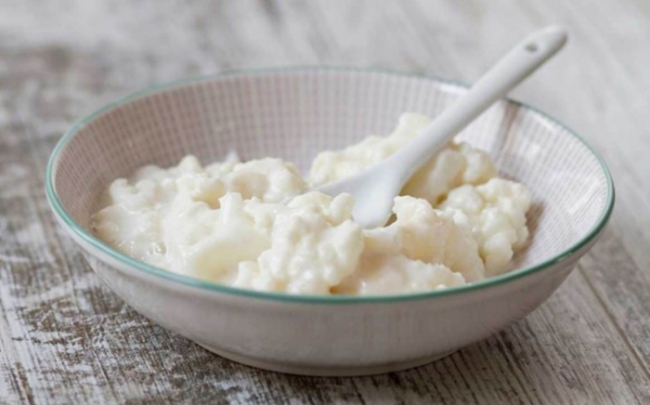
Kefir -
Tempeh is a fermented soybean cake that has been pressed into a compact cake. This high-protein meat substitute is firm but chewy, and it may be baked, steamed, or sautéed before serving.
Tempeh is high in numerous nutrients that may benefit your health, in addition to its excellent probiotic content. Soy protein, for example, has been found to help lower some heart disease risk factors. According to a study of more than 40 research, consuming 25 grams (0.88 ounces) of soy protein per day for six weeks reduced LDL (bad) cholesterol by 3.2% and total cholesterol by 2.8%. A previous test-tube study discovered that certain plant components in tempeh may work as antioxidants. Free radicals, which are damaging molecules that can lead to chronic disease, are reduced by antioxidants. Tempeh is suitable for both vegetarians and omnivores. Sandwiches and stir-fries are particularly well-suited to it.

Tempeh 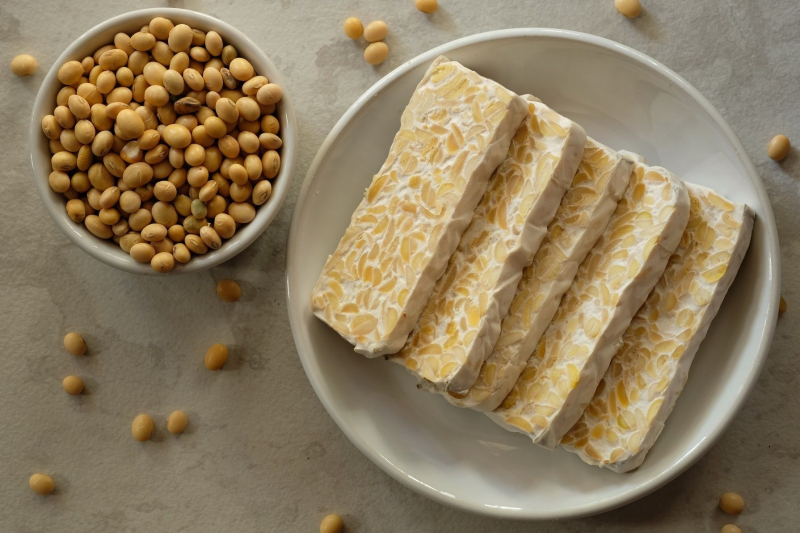
Tempeh -
Natto is probiotic food made from fermented soybeans, just like tempeh. It has a strong flavor and a slimy texture. It has high fiber content, with 5.4 grams every 3.5-ounce (100-gram) serving. Fiber may be beneficial to gut health. It passes through your body undigested, helping to promote regularity and relieve constipation by adding bulk to your stool. Vitamin K, a key ingredient involved in calcium metabolism and bone health, is also rich in natto. Natto intake was related to less bone loss in postmenopausal Japanese women in studies including hundreds of women.
Nattokinase is an enzyme produced during the fermentation of natto. Supplementing with nattokinase helped prevent and dissolve blood clots in a study involving 12 young Japanese males. Other research has discovered that using this enzyme lowers both diastolic and systolic blood pressure. Diastolic and systolic blood pressure decreased 2.84 and 5.55 mmHg, respectively, in an 8-week Japanese study, whereas they dropped 3 and 4 mmHg, respectively, in an 8-week North American study. Natto is frequently eaten with rice as part of breakfast which helps digestion.

Natto 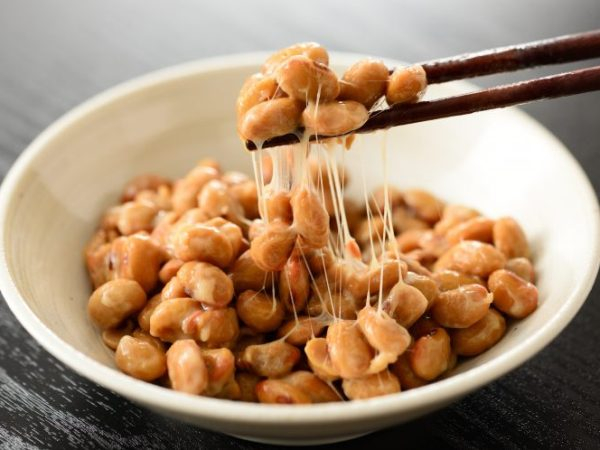
Natto -
Kombucha is a fizzy, tart, and flavorful fermented tea. It's brewed with either green or black tea and has all of the health benefits of both drinks. Drinking kombucha has been shown in animal studies to help avoid liver toxicity and damage caused by toxic substances.
Furthermore, test-tube studies have discovered that kombucha can help cause cancer cell death and stop cancer cells from spreading. Kombucha has even been shown in animal studies to help lower blood sugar, triglycerides, and LDL (bad) cholesterol. Although these results are positive, further human research is required. Kombucha is now available in most major grocery shops as a result of its growing popularity. It's also possible to create it at home, however careful preparation is required to avoid contamination or overfermentation.

Kombucha 
Kombucha -
In Japanese cuisine, miso is a frequent seasoning. Soybeans are fermented with salt and koji, a kind of fungus. Miso soup, a savory meal consisting of miso paste and stock, is most commonly found in Japanese meals. Breakfast is typically served with miso soup.
Miso has been associated with numerous health benefits in some research. One research of 21,852 Japanese women found a link between miso soup intake and a lower risk of breast cancer. Another earlier study including over 40,000 participants found that Japanese women who ate more miso soup had a lower risk of stroke. Miso may also aid in the reduction of blood pressure and the protection of heart health. In addition, research involving middle-aged and older Japanese adults found that eating miso soup on a regular basis may result in a reduced heart rate. Despite its saltiness, miso soup did not raise blood pressure. Other Japanese research, on the other hand, has linked miso soup intake and its high salt content to an increased risk of stomach cancer. In one research, eating 3–4 cups of miso soup per day increased the risk of stomach cancer, whereas eating 1–5 cups per day increased the risk of stomach cancer in another.

Miso 
Miso -
Kimchi is a traditional Korean side dish prepared from fermented cabbage or other fermented vegetables such as radishes. It has a long list of health benefits, and it may be particularly good in lowering cholesterol and decreasing insulin resistance. Insulin is in charge of transporting glucose from the bloodstream to the tissues. When your body is exposed to high levels of insulin for an extended length of time, it stops responding normally, resulting in high blood sugar and insulin resistance.
21 patients with prediabetes ate either fresh or fermented kimchi in one research and the result is insulin resistance, blood pressure, and body weight was all lower in those who ate fermented kimchi after 8 weeks. In another study, participants were given a 7-day diet including either a high or low amount of kimchi. Higher kimchi consumption, 7.4 ounces (210 grams) per day versus 0.5 ounces (15 grams), resulted in lower blood sugar, cholesterol, and LDL (bad) cholesterol. Kimchi is simple to make and may be used in a variety of dishes, including noodle bowls and sandwiches.

Kimchi 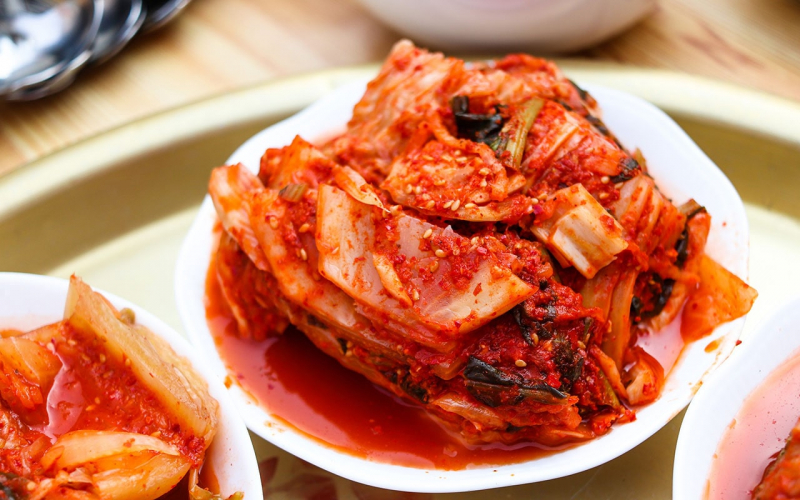
Kimchi -
Sauerkraut is a famous condiment made from shredded cabbage fermented with lactic acid bacteria. It has a low calorie count but is high in fiber and vitamins C and K.
It's high in lutein and zeaxanthin like other foods produced from leafy green vegetables. These antioxidants aid in the promotion of eye health and the reduction of the risk of eye disease. Sauerkraut's antioxidant content has been shown to have anti-cancer effects. Treatment of breast cancer cells with cabbage juice reduced the activity of certain enzymes related to cancer growth, according to a test-tube research. Sauerkraut may be used in a variety of meals, including casseroles, soups, and sandwiches. Choose unpasteurized sauerkraut to gain the best health benefits, as pasteurization eliminates beneficial bacteria.
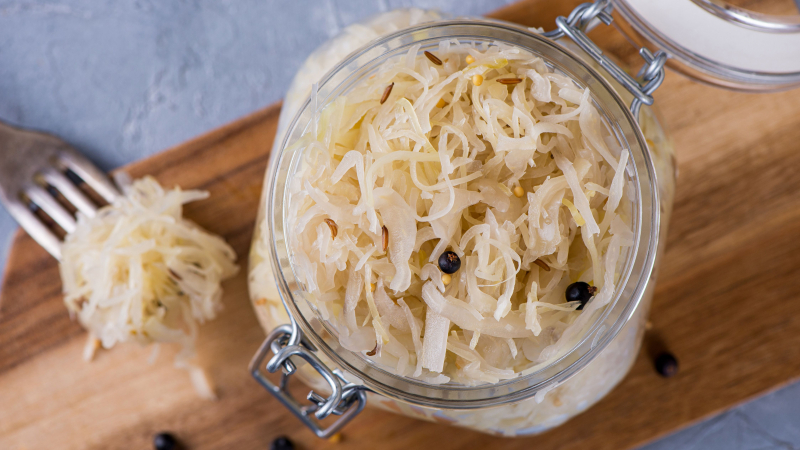
Sauerkraut 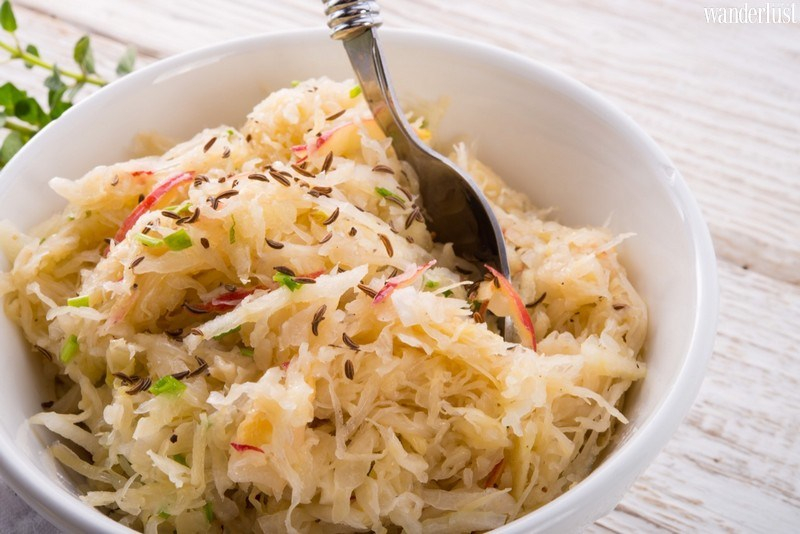
Sauerkraut -
Yogurt is made from fermented milk, most commonly with lactic acid bacteria. It's rich in calcium, potassium, phosphorus, riboflavin, and vitamin B12, among other nutrients. Yogurt has also been related to a number of health benefits.
Fermented milk products, such as probiotic yogurt, may help lower blood pressure in those with high blood pressure, according to an analysis of 14 research. Another study found that older persons who ate more yogurt had better bone mineral density and physical function. This creamy dairy product may also aid with weight loss. In one study, consuming yogurt was linked to a reduction in body weight, body fat, and waist circumference. Keep in mind that not all yogurts include probiotics, as these beneficial bacteria are frequently eliminated during the manufacturing process. To make sure you're getting enough probiotics, look for yogurts that include live cultures. Also, choose products with the least amount of sugar.
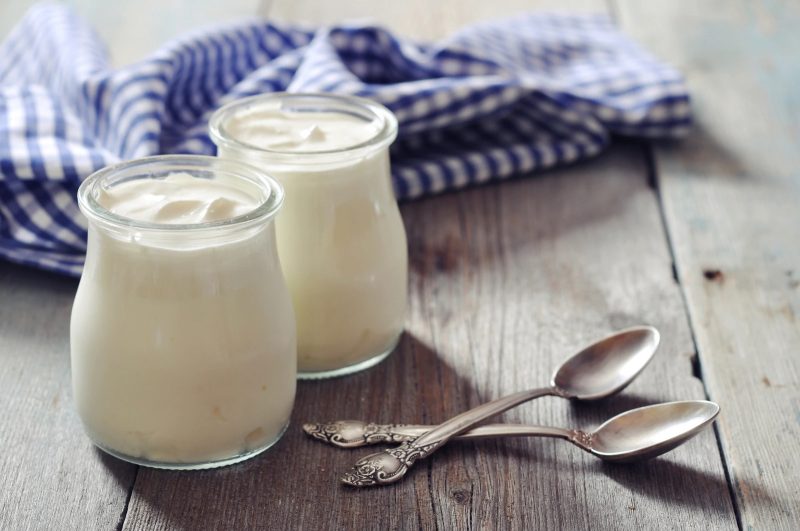
Probiotic yogurt 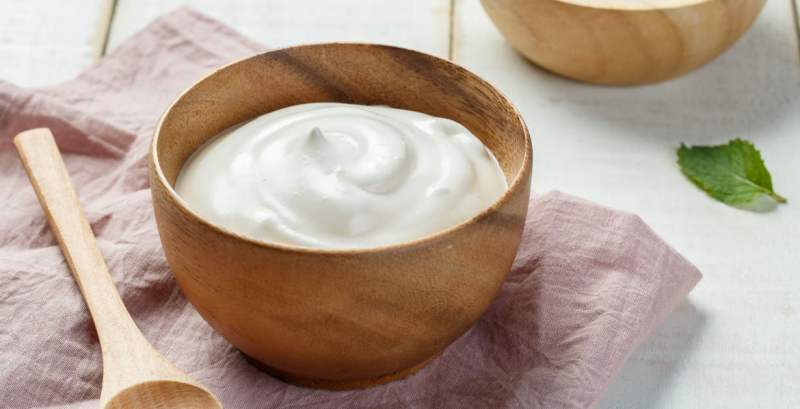
Probiotic yogurt -
Raw organic milk is particularly helpful for your health since it adds good bacteria to your gut and comes with its own set of digestive enzymes. Raw cheese is high in enzymes, which aid in the digestion of fats and proteins. The digestive system is not overworked when the food you consume is high in bacteria and enzymes.
Raw milk cheeses are created using unpasteurized milk. Raw milk and raw milk products may be easier to absorb, lowering the risk of lactose intolerance, according to a study published in the journal "Appetite" in 2008. Enzymes found in raw milk and raw milk products aid in the natural breakdown of fats, carbohydrates, and minerals in milk. Probiotics such as thermophilus, bulgaricus, and acidophilus are rich in goat milk, sheep milk, and A2 cow soft cheeses. Read the ingredient list to discover true fermented/aged cheeses, and search for cheese that has not been pasteurized. The cheese's label should indicate that it is raw and has been aged for at least six months.

Raw Cheese 
Raw Cheese -
Fermented pickles are high in vitamins and minerals, as well as antioxidants and probiotic bacteria that are good for your gut. Fermented pickles work as probiotics, protecting the microbiome of the body and boosting the growth of beneficial bacteria in the gut. Millions of bacteria reside in the stomach, helping the body digest and absorb food. These bacteria may assist with yeast infections, diarrhea, and constipation, as well as the treatment of chronic stomach issues like Crohn's disease. Because fermented pickles are high in probiotics, they may aid digestion and prevent minor stomach issues.
Most store-bought pickles are produced using vinegar and cucumbers, which give them a sour taste, do not result in natural fermentation. Cucumbers and brine (salt + water) should be used to make fermented pickles. Look for "lactic acid fermented pickles" made by a company that uses organic products and brine, refrigerates the pickles, and states that the pickles have been fermented when buying a jar of pickles. You can get some of the greatest probiotics for your health if you can find a local producer, such as at a farmer's market.
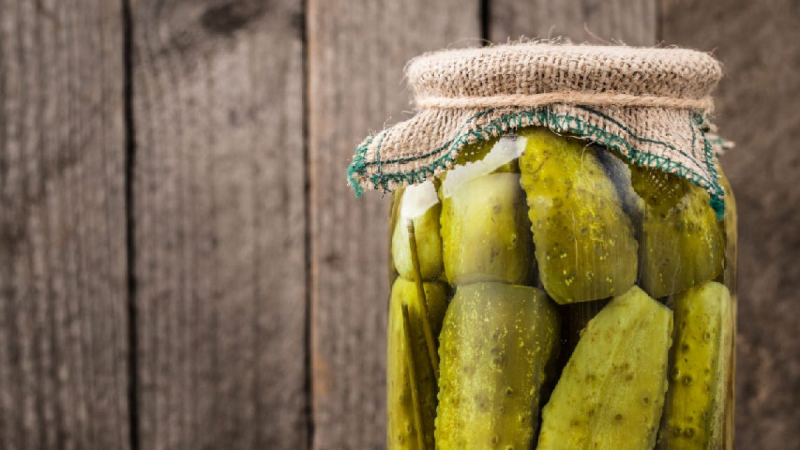
Pickles 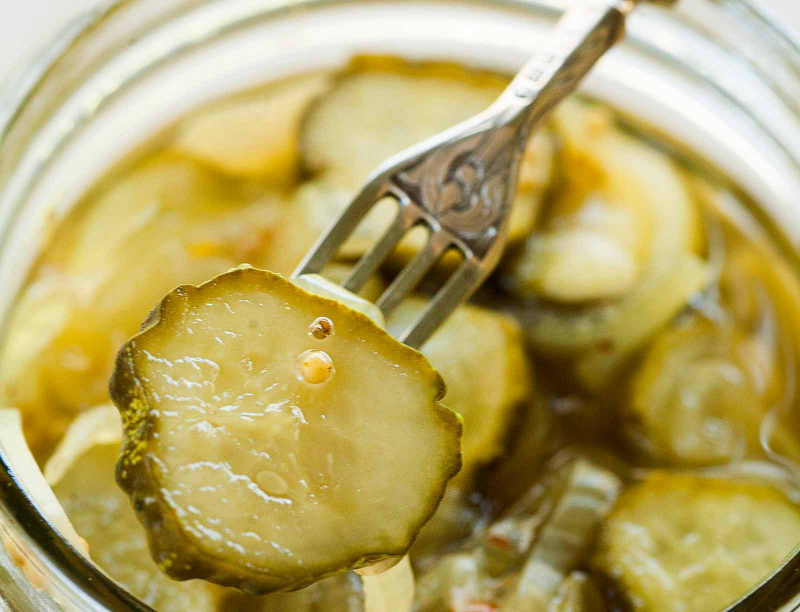
Pickles




















